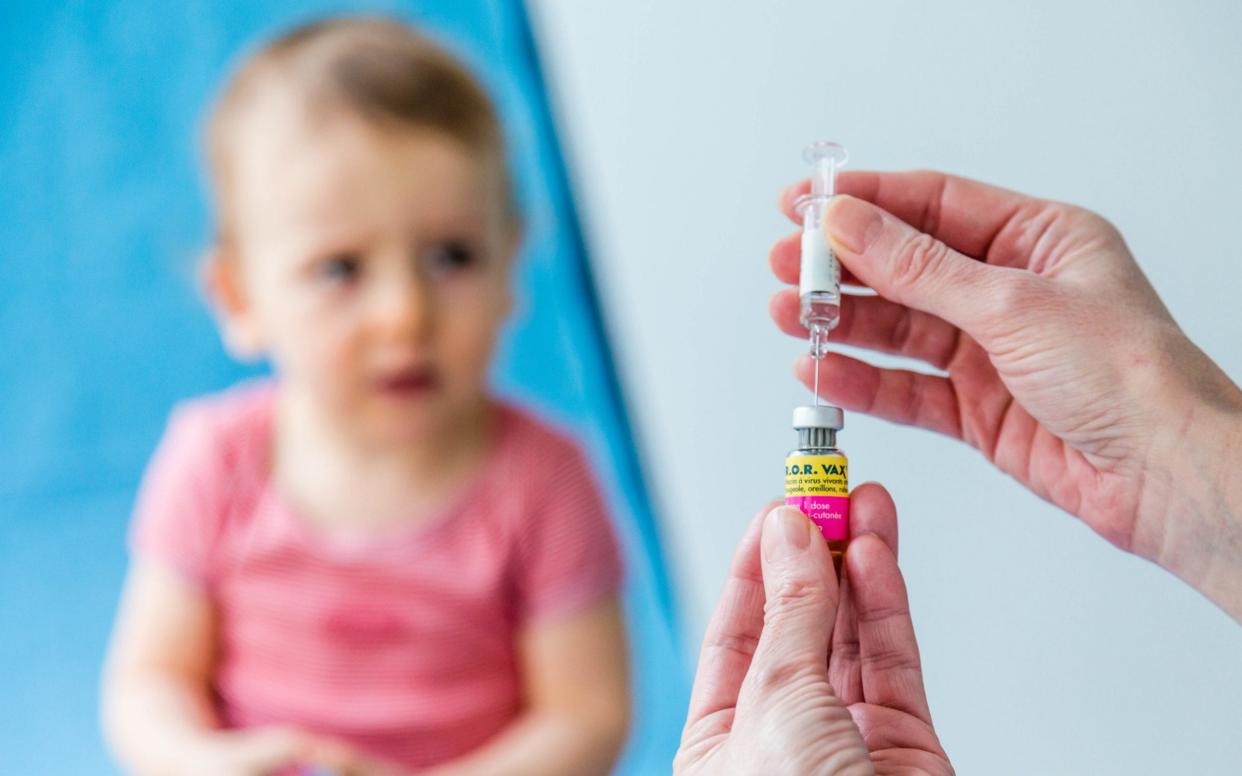German state orders compulsory measles vaccination at kindergartens amid fears of outbreak

The state of Brandenburg is set to become the first German region to introduce compulsory vaccination for children amid growing concern at the rise in measles infections.
All children attending kindergartens in the state will be obliged to be vaccinated against measles under new measures approved by the regional parliament this week.
The move comes after the rate of measles infections in Germany tripled to almost 1,000 cases in 2017, causing the death of one child.
There are concerns the highly infectious disease is making a comeback across the developed world as parents refuse the MMR vaccine.
New York has introduced fines for parents who do not have their children immunised as an outbreak in the US reached 465 cases across 19 states.
In Germany, there are growing calls for vaccinations to be made compulsory nationwide after infections more than tripled from 325 cases in 2016 to 929 in 2017.
Although the rate fell back to 542 last year, new outbreaks recently prompted schools in Lower Saxony and Schleswig-Holstein to order to unvaccinated pupils to stay at home.
Brandenburg is the first state to impose vaccinations but stopped short of making them compulsory for all children.
Vaccinations will only be required for children attending kindergarten, but that is likely to affect the overwhelming majority of children in the state.
Under the German education system, children do not start school until the age of six, and almost all attend kindergarten.
“The protection of babies, pregnant women and those who cannot be vaccinated takes precedence over over the rights of those who refuse to have their children vaccinated,” Andreas Büttner, the Brandenburg health minister, said.
“That is why we welcome any initiative that promotes active immunisation.”
The overall vaccination rate against measles in Germany is 92.9 per cent but it has been falling in recent years.
Local figures for Brandenburg show that only 73.5 per cent of children under the age of two have been immunised, suggesting more parents are refusing the vaccine or choosing to delay it.
Measles used to kill almost 2.6m people a year before modern vaccinations became widespread in the 1980s, and still kills over 100,000 a year in the developing world.
But a growing number of parents are refusing the MMR vaccine for their children over fears it may cause autism or other developmental disorders, despite the fact there is no scientific evidence to support this.

 Yahoo News
Yahoo News 
